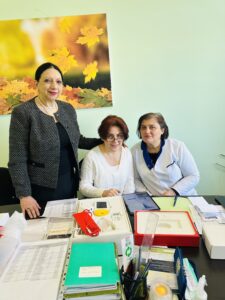
In Georgia, the dedicated core team of the Center for Allergy and Immunlogy Research (CAIR) – Maia Gotua MD.PhD., Tamar Abramidze PhD., Maia Rukhadze MD. PhD. – has made impressive progress over the past six months together with the participating pilot schools, turning science into action for public health.
As part of SynAir-G, CAIR aims to uncover how daily exposure to air pollutants affects children’s lung function, wellbeing, and long-term health, and to generate solutions that empower schools, families, and policymakers to create healthier environments.
In the last six months, the CAIR team successfully engaged 133 children aged 8–9 years from five schools in Tbilisi. Each child and their family became active contributors to this important research — helping us capture valuable data on how air quality influences health.
Comprehensive health checks were carried out, including measurements of height and weight, lung function testing (using spirometry and FeNO), and completion of Pediatric Quality of Life surveys by the children. In addition, the CAIR team provided Garmin wearables and home spirometers to help continuously track the children’s physical activity, respiratory health, and exposure to air pollution over time. Students from the five schools also took part by exploring the educational, gamified mobile app Save the World, developed as part of the SynAir-G project. Indoor pollution is continuously monitored through the installation of environmental sensors in schools as well as by collecting environmental samples, such as dust, for more detailed analysis. To support overall data collection – including app usage and device functionality – the CAIR team maintains regular communication with the families.
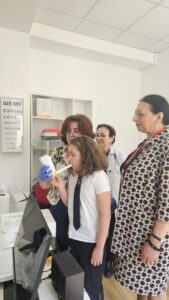
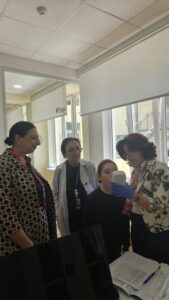
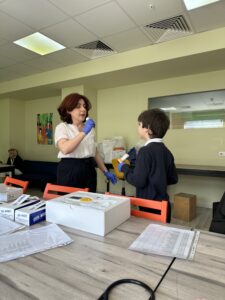
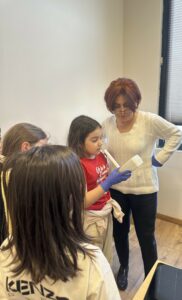
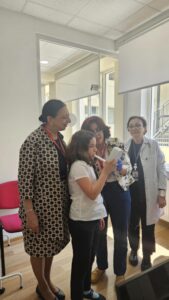
Despite challenges like delayed recruitment, technical device issues, and difficulties in maintaining long-term participant engagement, CAIR overcame these obstacles through strong partnerships and ongoing communication with schools and parents, making significant progress toward cleaner indoor environments and improving children’s health.
The data collected will help understand how air quality directly impacts lung function in school-aged children, inform public health policies and school interventions and raise awareness among families and communities about the invisible risks of air pollution. Continue to follow the work of Synair-G and CAIR as we continue to turn data into action, science into solutions, and challenges into progress!
Stay connected! Follow Synair-G on Twitter and LinkedIn, and subscribe to the SynAir-G Newsletter to receive latest updates.
